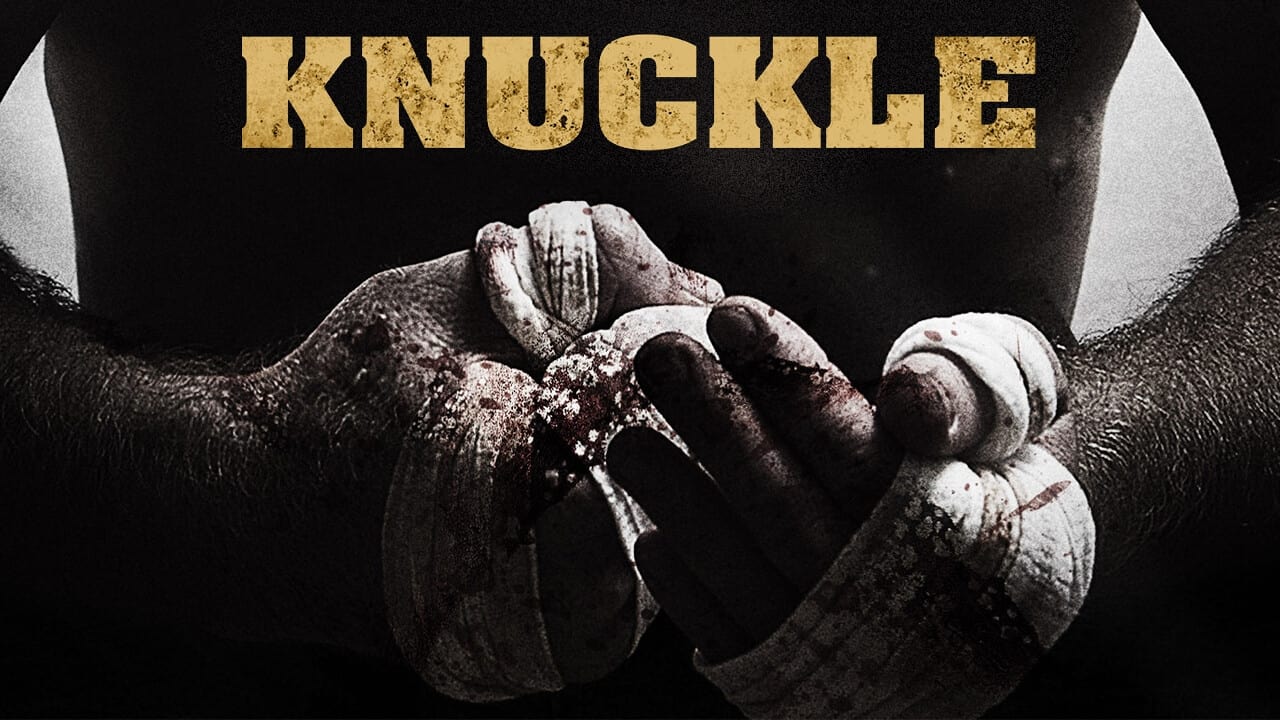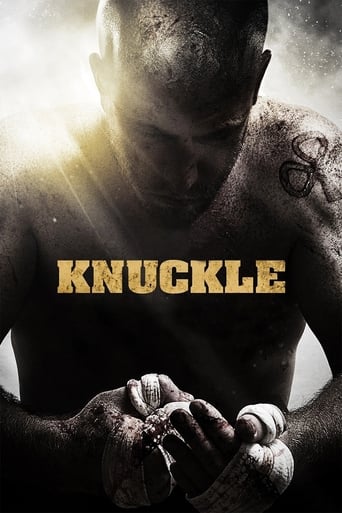

Like many great documentaries, Knuckle was born out of something else. It originally began as a wedding video. Ian Palmer found something so interesting about his guests, he ventured further and discovered the world of Irish travelling bare knuckle boxing. Most specifically he follows the feud between two clans of the same family, The McDonaghs and the Joyces. So after that wedding video, Palmer ended up documenting this feud and these fights for 12 years. This extraordinary amount of time puts the whole thing into perspective about the needlessness and absurdity of violence. Many say the feud goes back 50 years, and yet nobody gives a straight answer as to its origins. People hold grudges and plan rematches 9 years down the line. It becomes obvious that fighting has become an addiction and a way of life for these poor men. They have nothing else to do. When we see the acclaim they receive from their families, it's easy to see why they have been so taken in by aggression. In the first fight James McDonagh says it will be his last, but it's far from it. He seems genuine about his wanting to quit, but he always ends up in another fight. Even the director talks about how he continued filming just for the thrill, and had lost sight of his documentary. Every fight is brutal in that realistic sense, and Palmer clearly paints a vivid picture of this strange world. Aggressive men, but loving husbands and fathers. Fights that are fought for lack of reason, but are controlled and fair with a sense of honour. Knuckle is the kind of film that lures you in with basic blood lust, but gives you a whole lot more.
... View MoreKnuckle is a sad story about various factions of one family of Irish Travelers who settle decades-long animosity toward one another through bare-knuckle battles that take place in obscure areas across the Irish landscape. Modern technology plays a big role in their feud. The fights, that pit the toughest men in each of the families against one another, are filmed for immediate viewing by all competing families.Although the battles, billed as "fair fights" with impartial referees from non-combatant families, show the fighters giving their all, win or lose, it is the insulting and disparaging commentary, captured on film after the fights by the victors' clan members that fuel the feud for years to come. There are isolated shots of women and children. One woman, in particular, spoke at length about the need for all of this to come to an end. The greatest sadness in the film is the legacy that the feuding and fighting brings to the children who are doomed to follow in their dads and uncles footsteps, if not as fighters certainly as haters. One might conclude that these feuding families found a safer way of dealing with their hostility toward one another than shooting or stabbing.Filmed over a decade-long period from the mid-1990's to mid-2000's, viewers are offered only a glimmer of hope that things could change. But even this is marred by the reality that all it takes is a slight, an insult or a "dis" that could change things in a moment. As for the fighting itself, film-goers will see quite a few bloody battles, one with two out-of-shape grandfathers. But there is nothing to compare with professional boxing or mixed martial arts. These were pure street fights with some grabbing, gouging and biting (although all of that was cause for disqualification). As someone one who knows just enough about boxing I kept wondering, throughout all of the fights, why none of the combatants went for the body.
... View MoreA great film that i will watch again and again, the low rating is just not justified, this is pure adrenaline and compassion at the same time. A raw in depth documentary not to be missed, a look into the normally very private lives of the Irish travellers. This isn't just fight after fight it shows why and how the family's solve there feuds. some of the footage is a bit sketchy but takes nothing away from the film if any thing adds to the gritty compelling nature of this feature. Although i would say this isn't for the feint hearted and contains some very brutal real life bare knuckle fights, this is still a very good film that every one should see.
... View MoreDirector Ian Palmer had a contact with Irish 'traveller' families and he became interested in their ways. In particular he sought out the semi-ritualized bare knuckle fights which solve (and re-kindle) their feuds. This feature-length documentary has been gestating for over a decade. Palmer's film partly appeals because of the secret nature of the age-old practice and the raw brutality of some of the moments caught on film. It grabs the same part of the psyche that responds when the ugly cage fighting is on (Cable) TV. Of course bare knuckle fighting isn't the invention of the 'tinkers' – it was common throughout England in the 19th century – it just looks weird now as an atavistic survival amongst these sprawling, huge, feud-locked families. Some of Palmer's subjects are great documentary material, especially his lead character who keeps fighting (and winning) but who has begun to felt heart-sick at the whole thing. You can also see the well springs of renewal in the adoring faces of the little boys who shadow box and dance around him as he comes home victorious. This is what it means to be a real man in this community. The old men are involved too, usually as referees (there are rules as we discover when young aspirant loses the plot and is disqualified for a bit of the old Mike Tyson face-biting). Away from the blood lust and excitement of the back lots and lanes, the members of the various feuding families – the Quinns and the Joyces – pontificate on what the point of it all is. "It's not just wars", says one man, "it means something." But the remark hangs in the air precisely because, as Palmer's haunting doco shows, this might no longer be true, if it ever was. There is individual heroism here but increasingly the sad idea takes hold that this dying form is just a huge cannibalistic waste of community energies.
... View More